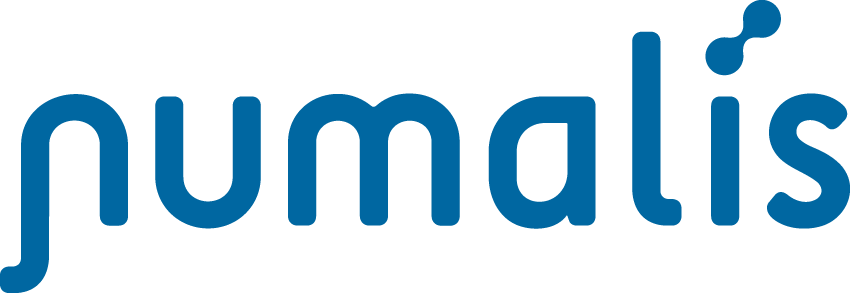The enthusiasm for artificial intelligence affects all sectors. In the field of tourism, AI is on the verge of becoming a standard.
Artificial intelligence is gaining importance in the tourism sector, whether it’s about planning trips, ensuring quality, and especially the availability of customer service, or helping to regulate tourist flows and road traffic. Whether AI is tasked with customizing offers, providing tailored recommendations, or ensuring a quick response even in the absence of staff, it undoubtedly adds value to the travel industry. But it also contributes to the safety of property and people. You get it: you can go on vacation with peace of mind since AI is watching!
Artificial intelligence to facilitate vacation planning
The ability of AI to produce customized tours or stays has not escaped tourism professionals or travelers themselves. They use online tools to compare prices, find a hotel that meets desired characteristics, or choose a destination based on their budget. AIs like ChatGPT can compare travel agents’ offers and personalize them. No need to go to an agency: AI browses various programs available online and offers the best ones based on your criteria1.
How tourism professionals use AI
Does this mean that artificial intelligence heralds the death of travel agencies? Not really. But it is certain that the more traditional ones may see their revenue decrease. Conversely, those that develop innovative concepts and know how to reinvent themselves could find in artificial intelligence their best ally. In other words, for tourism professionals, AI is both an opportunity and a threat2.
Online agencies, for example, rely on AI to create a personalized customer journey. Travel websites offering hotel, flight, and activity bookings bet on the power of artificial intelligence to provide customers with optimized recommendations based on their search history. A better match between customer expectations and travel offers leads to an increase in the conversion rate.
We should also mention the central role of chatbots, those conversational assistants that work with artificial intelligence and rely on natural language processing or NLP. These intelligent robots can answer targeted questions and make travel reservations.
By allowing travelers to find the best options themselves, artificial intelligence seems set to play a nasty trick on tourism professionals. But AI also enables agencies to be more efficient by optimizing hotel and rental management or by improving the visibility of online accommodation promotions. Access to rentals can be automated thanks to AI and connected locks3.
Artificial intelligence can also help professionals determine the appropriate price for a room or apartment based on demand, season, and competitor rates4. Generally, AI assists hotel operators in improving customer experience and creating tailor-made offers5.
Main current uses of AI in the tourism sector
Personalized recommendations
Some travel sites use AI to provide personalized recommendations6 on destinations, accommodation, and activities. These recommendations are based on data such as travel history, interests, and user preferences.
Automated booking systems
More and more travel sites are using AI-based automated booking systems. These systems can automatically plan and optimize flight and hotel bookings as well as travel itineraries.
Image recognition
Now there are travel sites using AI-based image recognition to help travelers find destinations that match their tastes. The user can upload a photo of a place or tourist site, and the system suggests similar destinations.
Conversational assistants and tourism
Conversational assistants are appearing on online travel agency sites, such as Trip.com7. Their mission is to help travelers book. Simply ask the voice assistant to find flights, hotels, and activities. The system synthesizes the search and presents a list of corresponding offers.
Planning your trip from A to Z with AI
The general public is starting to get familiar with “ChatGPT”, which has become particularly popular in just a few months. It can be entrusted with planning your next custom-made vacation, by asking for a list of campgrounds, the best route, the activities to prioritize. Are you lacking inspiration for your next trip? The AI is capable of suggesting the “best” destinations.
Companies like Expedia or Kayak have their own plugin available to “ChatGPT Plus” users8.
However, the results may not necessarily be original, as the intelligence scans the Internet to suggest the most trendy countries or regions. “ChatGPT” tends to repeat common preconceptions: thus, falling into clichés, it considers Naples as the worst destination in Europe, without questioning for a single moment the assets of the destination!9
General AI or specialized AI?
There are now AIs specially dedicated to travel. You can use them to plan your stay from A to Z. This is the case, for example, with Trip Planner AI10. The application allows you to indicate the number of travelers, the destination, the length of the trip, and the budget. The artificial intelligence needs only a few seconds to prepare a complete downloadable itinerary, with advice on activities, restaurants, and accommodations. The application provides links to booking sites for hotels and car reservations.
Another AI, Mighty Travels11, allows travelers to save on transportation costs by identifying the best low-cost air connections in record time.
The conversational agent of the online travel agency Trip.com is called TripGen12 and is based on OpenAi’s language models. This chatbot is designed to answer simple questions and relies on a database of the most frequent traveler requests, such as “where should I go for…”. The AI can suggest a restaurant, an urban itinerary, or even give you all the information about the artwork you are admiring in a museum. The AI also allows you to benefit from a guided tour – without having to follow a group. If you are looking for a specialized solution, you can turn to the Summer AI tool13, which lists millions of tourist sites worldwide.
There is something for everyone. Do you prefer nature to urban walks? The AI can help you organize your hikes14, and dedicated apps allow you to take valuable mapping with you, accessible from your smartphone. In any case, tools relying on artificial intelligence for travelers are multiplying, and you will inevitably find an application that meets your needs15.
AI to optimize your movements
One of the most interesting uses of AI for travelers is undoubtedly the ability to optimize your movements. Thanks to artificial intelligence, you have access to the fastest route by public transportation or the shortest route by road. AIs are particularly effective in analyzing traffic flows. Examples include Waze16 and its real-time road information. But there are other alternatives, starting with Google Maps. These smart assistants now offer indispensable driving assistance, allow you to identify work areas, or avoid traffic jams17. They also feature a function to reduce CO2 emissions by suggesting the most fuel-efficient route.
Whether you are traveling in France or abroad, you will undoubtedly need parking. Searching for an available spot can be tedious and waste precious time, time you would rather spend on the beach or at a café terrace, enjoying an ice cream. Artificial intelligence comes to the rescue, with a list of car parks. Parking.ai18 gives you access to its databases, throughout Europe. You can target the nearest parking, compare rates, and, of course, reserve your spot.
Artificial intelligence and holiday safety
No successful vacation without safety. To enjoy your stay or trip in complete serenity, AI is essential. It first allows you to ensure the surveillance of your home in your absence, by controlling alarms and cameras. One of the functions of AI is to sound the alarm in case of intrusion. But it also contributes to safety in stations or airports.
AI ensures other essential security missions. In particular, it is capable of detecting risky situations in swimming pools and thus preventing drownings. There are now several dedicated systems19. Likewise, artificial intelligence is beginning to be used to assist lifeguards in monitoring beaches. Here again, it is about better managing the risk of drowning20. AI can even detect sharks21.
Finally, AI contributes to holiday safety by helping with first aid. We are not all lifeguards and yet, we must intervene in case of discomfort or accident, to save lives. Artificial intelligence is capable of guiding step by step a person who performs first aid gestures22, even if this person is not trained at all. Moreover, AI is already used by emergency medical services and allows them to save precious time, thanks to the automation of care protocols.
Is artificial intelligence a danger or an opportunity for the tourism sector? We have seen that consumers gladly take advantage of this promising solution to plan their travels and visits more easily. In this sense, AI is clearly about to revolutionize the sector. It’s not only the clients who benefit from it; service providers can also take advantage of the automation of repetitive tasks, such as those related to reservation management. AI also contributes to the safety of goods and people, ensuring serene vacations. Even though AI brings many advantages, there are still challenges to be met. In particular, regarding data security and confidentiality, an issue that we probably do not yet fully understand all the implications.
- Impact of Generative AI for Travel Agencies ↩︎
- Challenges and Opportunities of AI for Tourism ↩︎
- Smart Lock Solution ↩︎
- Changes Induced by AI in the Travel Industry ↩︎
- AI to Enhance Customer Experience in Hotels ↩︎
- AI to Revolutionize Tourism ↩︎
- AI to Simplify Travel Planning ↩︎
- ChatGPT Plugins ↩︎
- Naples Designated as Worst Travel Destination by ChatGPT ↩︎
- Trip Planner AI ↩︎
- Top AI Tools – Mighty Travels ↩︎
- AI to Simplify Travel Planning ↩︎
- Top AI Tools – Summer AI ↩︎
- GitHub – AI Application for Hiking ↩︎
- Top AI Tools – Search for Travel Applications ↩︎
- Waze – Intelligent GPS ↩︎
- Intelligent GPS Assistance Tools ↩︎
- Parking AI ↩︎
- Drowning Detection Systems SwimEye and Mylo ↩︎
- AI to Monitor Swimming at the Beach ↩︎
- AI to Detect Sharks ↩︎
- AI to Assist with First Aid Procedures ↩︎







